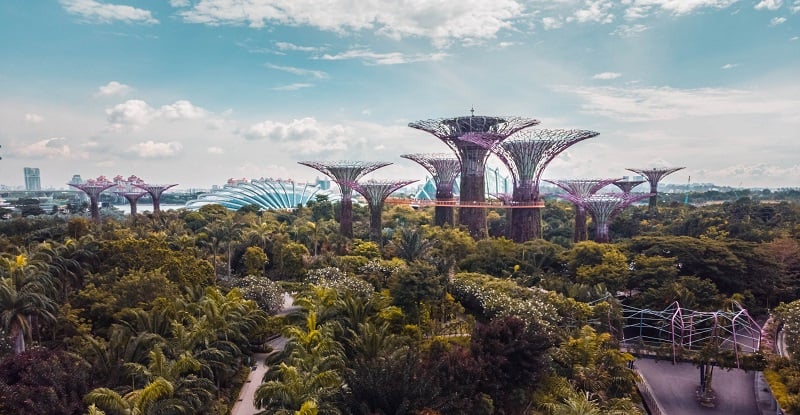Nowadays, amenities such as flat-screen TV, Wi-Fi, aircon, minibar, etc. in your typical hotel rooms are considered must-haves and can no longer act as key differentiators. Hotels will certainly evolve, and the adoption of new technologies is inevitable. The question is, how drastically?
Various articles have mentioned the next generation of technologies that will help transform the hospitality industry. Many hotel chains have already implemented Artificial Intelligence with chatbots being the most popular use. We can clearly see that the increase in personal interactions and the ability to provide a tailored guest experience by incorporating technology effectively are key drivers for hotels to thrive in this day and age.

The essential components that make up a hotel room of the future
The birth of the internet brought along loads of amazing services, solutions, and products to satisfy every customer's expectation, create a dynamic and competitive market. Platforms like Booking.com, Agoda, or Airbnb allow users to rate and leave reviews about their experiences which ultimately affect other travellers' booking decisions.
One key factor that hoteliers need to keep in mind is the purpose of digitalisation is to streamline the business processes as well as to ensure interactions never gets disrupted. To design a hotel room of the future and to maintain a competitive edge, hotels must embrace technologies.
Read more: 3 ways AI is providing personalised experience to hotel guests
The increased popularity of "green hotels"
Being eco-friendly, going green, or living sustainably is a trend that is gaining momentum and does not show any sign of stopping.
According to the "Where sustainable travel is headed 2018" by Booking.com1, 46% of the respondents said that "sustainable travel" means staying in eco-friendly or green accommodations. Furthermore, 87% of respondents stated they want to travel sustainably, with nearly 39% confirmed that they often or always manage to do so. With these statistics in mind, the hospitality must transform to meet up with the demand accordingly.
Hotels can start "going green" by conserving in-room energy which can be tough in cases of high-end hotels and resort. With the help from technology, hoteliers can do so by automatically and intelligently monitor in-room amenities, from thermostats to lighting and HVAC systems, curtains, water temperature, etc. via the hotel guest’s key card, smartphones, smart devices or a virtual assistant.
The basics of checking-in and out of the hotel
Hotels are known as the place for guests to unwind, to relax and enjoy the facilities, the food, the activities offered. It would be such a let-down if the primary touchpoints, such as reservations, check-in, check-out, room unlocking or member upgrades are all tangled up, manual, and time-consuming. The prominent trend in various enterprise management solutions today is mobile first.
Imagine, your guests arrived at your hotel late due to a flight delay, and they still had to go through all the hassles of checking in at the front desk. AI will be able to detect the problems, notify your front office staff about any last-minute delay or cancellation and suggest a suitable backup plan.
Your front office staff can also provide the late-coming guests with a seamless check-in process, any possible alterations, and access to their room through one single device - the guests' smartphones, to avoid exhausting the guests further.
The basics of indulging
In "The hotel room of the future" report done by Independent Hotel Show2, innovations can happen anywhere, even to our normal, everyday furniture such as beds and bathtubs.
To transform the hotel into "a place to truly indulge", Independent Hotel Show has featured in this year report the most innovative bed that emits “subtle amber lights that encourage "alpha brainwave" state preceding sleep, with built-in lavender scent diffusers and air purifiers.” And perhaps, the best feature of all is the "special zoning" that ensures guests to have the most comfortable, undisturbed sleep by minimising the motions of their partner.
Hotel's Wi-Fi can connect to the entire networks of "connected things" to connect the guests' personal devices with in-room amenities, which can match up with the guests' sleeping time, movements and temperature to adjust lighting, aircon, curtains, etc. accordingly. This essentially helps create an ideal form of personalisation for hotels.
The basics of basics
Do you know, on average, it takes a guest at least 12 to 15 minutes to understand how to control their TV, temperature, lighting and other functions? Such time wasted on learning the technology is deemed inefficient which can translate to lower guest satisfaction.
Implementing voice-command technology (a virtual assistant) can simplify such process. A virtual assistant plus a wireless charging station can make rooms look cleaner. Wynn Las Vegas and Encore Resort is one of the first resorts in the world to install Amazon Echo in every guest rooms to enrich the guest experience.
By utilising guests' smartphones, in-room tablets and virtual assistants, hotels can expect a consistent service flow and endless streams of valuable insights to mine, all to serve the purpose of catering a personalised guest experience.
Read more: Should hoteliers consider implementing cloud applications?
You may think that "Hey, that's tons of transformations just to please the consumers." It is true! Hospitality is the second oldest industry in the world, and though the customer's demand would evolve over time when it comes to lodging accommodations, what the guests require are "comfort, elegance, and unique style that suit each individual."
This can make smaller hotels feel like they are being cornered. Your hotel may not have the most advanced Artificial Intelligence system to help connect you with the guests 24/7, but you can make up to it with the most attentive staff with high levels of hospitality and a deep knowledge about their local areas.
Also noted in Booking.com’s "Where sustainable travel is headed 2018", travellers are going out of the way to find a local restaurant that only uses local ingredients. A lot of the travellers who favour the "sustainable travel" trend do not follow what the majority tourists do. They like places that the locals like to hang out, to eat, to relax. They want to help the local businesses, to experience in their own ways, and your employees can act as a guide to make their wish lists come true.
Having said that, the transformation is not always bad. It can help hoteliers to replace the labour intensive processes which can cause much discomfort for the guests: remote controls or light switches that can't be found, rooms that are either too hot or too cold, empty minibars that require the guests to notify the reception, or housekeeping service that takes too long to respond.
Automatically update in-room condition with seamless use of technology so that the hotel staff can respond to each individual requirement without intrusion or delay is the aim.
Sources:
1. https://globalnews.booking.com/where-sustainable-travel-is-headed-in-2018/
2. https://www.independenthotelshow.co.uk/images/HRotF-Report.pdf
 English
English  Vietnamese
Vietnamese 


